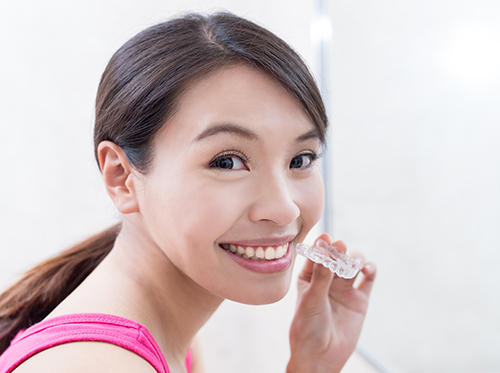How Long Do I Need To Wear Retainers?
January 30th, 2019

Once you get your braces off, you want to make sure your smile remains straight! This is where retainers come in.
Once your braces come off, you’ll be fitted for a retainer provided by Dr. Paul Bourque, Dr. Kathy Russell, and Dr. Andy Emanuele to keep those teeth in place. A retainer is a custom-fit device that sits in the mouth and reinforces the new position of your teeth. Wearing it may be annoying at first, but it’s an essential part of the process of keeping your teeth in place over the long term.
For the first few months after your braces are gone, Dr. Paul Bourque, Dr. Kathy Russell, and Dr. Andy Emanuele will tell you to wear your custom retainers all the time, except when you’re eating, drinking, or brushing. You have the option of having a clear plastic retainer made if you’re concerned about your appearance.
Eventually, we will recommend that you only have to wear the retainer during each night for a full year. After that, you may take a couple nights off from wearing them each week. In order to preserve the position of your teeth for as long as possible, we don’t recommend that you ever fully stop wearing your retainers.
If you’re concerned about forgetting to wear your retainer, and worried that your teeth may shift, a lingual retainer could be a good option for you. This gets placed on the back of your teeth and is not readily visible.
These retainers are permanent, but they could cause issues for you down the road if you don’t maintain good oral hygiene. Plaque and tartar can build up around these lingual bars, which is why we don’t usually recommend this as a primary choice.
Wearing your retainer is extremely vital after your braces come off. Without your retainer to keep them in place, the teeth you’ve taken so long to fix may begin to shift again. Getting braces is quite an investment, which is why you should keep wearing your retainer long after the braces have come off.
If you have questions or concerns regarding your retainers, contact our Halifax office and we can address any problems you may have.












